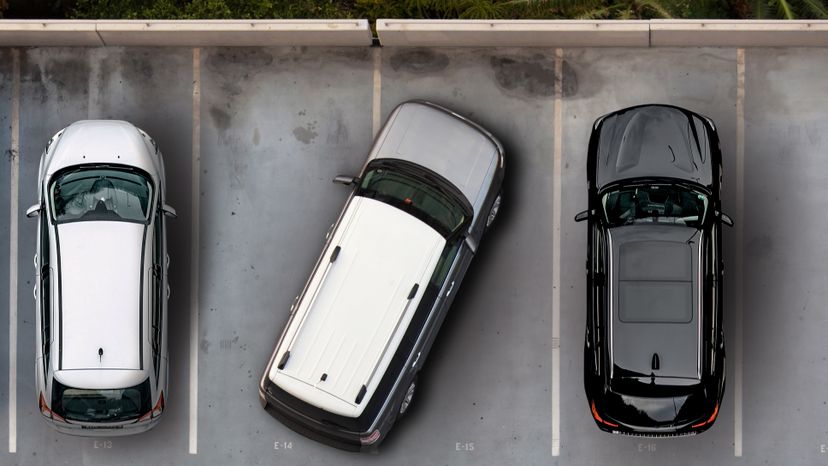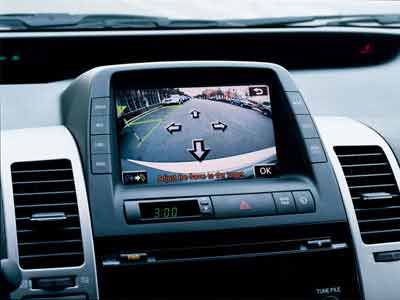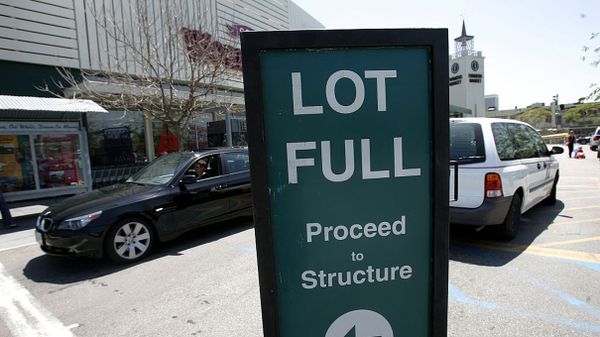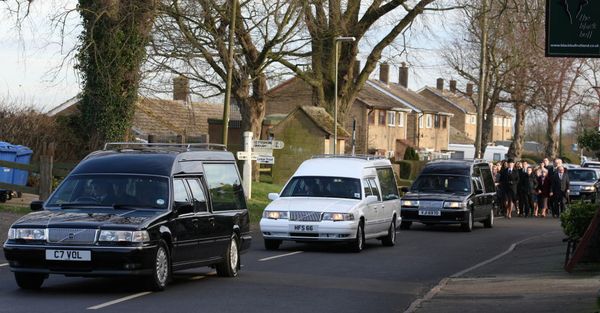
In suburban New Jersey in 2014, a man drove a Jeep into a nearly full parking lot at a restaurant. While looking for a place to park, he spotted a brand-new, white Corvette sports car parked diagonally, taking up two parking spaces close to the eatery's entrance. As the Jeep driver later explained in a WABC-TV news story, he was sufficiently irked that he decided to play a prank on the Corvette owner. He pulled his Jeep up onto the concrete curb at an angle and parked it next to the Corvette, nice and tight. Then he went into the restaurant and got a table by the window, so he could watch the sports car owner's shocked look as he checked for dents. Call it silent protest, or call it passive-aggressive — either way, it was social media gold.
Not everybody might want to go to that much effort to express disapproval of parking-space straddling, but it's not hard to understand the sentiment. A recent study by transportation analysis firm INRIX Research found that 49 percent of U.S. drivers consider parking in two spaces to be the "worst parking sin." That's more than twice the amount as were aggrieved about people using parking designated specifically for disabled people or families.
Advertisement
There don't seem to be any definitive studies on how often the breach of common decency occurs, but Gary A. Means — executive director of the Lexington & Fayette County Parking Authority in Lexington, Kentucky, and a member of the board of directors of the International Parking Institute — estimates that as many as 3 to 5 percent of drivers park outside the lines, and take up more than one space.
And it doesn't just happen in parking lots. Means said that many space-straddlers are curbside parkers, sometimes because they're in a hurry or else lack parallel parking skills. Some drivers become space-straddlers out of necessity, he says via email, because they've got an oversized vehicle such as an RV, or are hauling a trailer.
But, he says, "I'm not aware of any reason to justify a standard-size vehicle to take up two spaces.".
Space-straddling might be a parking etiquette no-no, but is it illegal? The answer depends upon where you are in the U.S. In Charleston, South Carolina, for example, being caught parking outside the lines can result in a $10 ticket. In Grand Rapids, Michigan, the infraction will set you back $20. Costa Mesa, California lists "Vehicle not within single parking space" as an infraction under its municipal code — though the city's website doesn't indicate the size of the fine. And there are no readily apparent municipal codes that address whether a car parked in two metered parking spaces whose owner pays both meters fully could be in the clear.
But that's not necessarily the case everywhere. In 2012 in Prince George's County, Maryland, a man stopped at a liquor store and parked so that his car was centered over the line separating two parking spaces. A George's County police officer noticed other would-be liquor shoppers trying unsuccessfully to squeeze into the partial spaces on either side of the man's car, and waited for him to return. The officer told the space-straddler that he'd committed a violation. The man seemed nervous and put his hands in his pockets, eventually leading the officer to search him and find a knife, marijuana, and 16 bags of crack cocaine. More drugs were found in the car itself. The driver was arrested and convicted on drug charges, and sentenced to eight years in prison.
Ultimately, though, Maryland's Court of Special Appeals threw out the man's conviction. As the justices explained in their opinion, "The officer who detained appellant in the parking lot did so under the mistaken belief that there was a statutory provision which made it illegal to park one's vehicle straddling a line on the pavement. Because a lawful detention cannot be predicated upon a mistake of law, the evidence obtained during the ensuing encounter should have been suppressed."
What about space-straddling on private property, such as shopping-mall parking lots? That's a murkier area. Means says that property owners can likely set their own rules, and while they may not have the power to write a court-enforceable ticket, they can issue tickets via private collection companies, or could ban violators from their properties. We couldn't find any news accounts of U.S. businesses imposing penalties on parkers who take up two spaces, but a mall in Ontario, Canada, does issue tickets and fines of $20 Canadian (about $16 U.S.) for such infractions.
Harsh glares, social media shaming and nasty notes left tucked under wiper blades may be more common while we wait for the hopefully better-mannered self-parking cars of the future to arrive.
Advertisement


